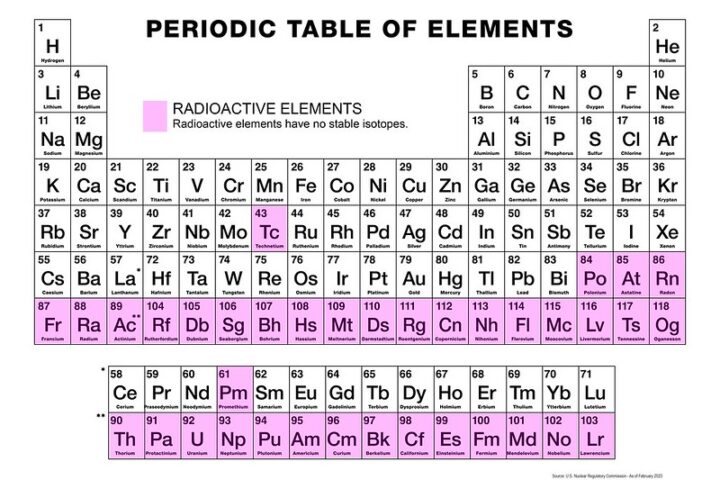Source: Firefly A photorealistic image of a colorful plate overflowing with fresh Mediterranean ingredients.
Introduction
The Mediterranean diet is a dietary pattern based on the food of the countries bordering the Mediterranean Sea. Over the past decades, the Mediterranean Diet has grown to be not only one of the healthy diets but possibly one of the most popular diets in the world. This dietary pattern, characterized by whole and unprocessed foods, promotes lesser risks of chronic diseases and improved cardiovascular health, thereby promoting good health. We are going to cover in this article the major components of the Mediterranean diet, explore some scientific evidence that supports it, and present how to practically put it into action in your life.
Understanding of Mediterranean Diet
The Mediterranean diet is something more than just a combination of ingredients but rather a way of life, which presupposes balance in meals as well as in life. Key elements of this eating pattern include the following:
- Plenty of fruits and vegetables: Eating a rainbow of fruits and vegetables provides essential vitamins, minerals, antioxidants, and fiber.
- Whole grains: Whole grains like brown rice, quinoa, and whole-wheat bread supply energy and fiber.
- Healthy fats: Of course, olive oil is a mainstay of the Mediterranean diet, offering heart-healthy monounsaturated fat.
- Legumes: Beans, lentils, and garbanzo beans are healthy lean protein sources, again providing much fiber and other nutrients.
- Nuts and seeds: Almonds, walnuts, and chia seeds are sources of healthy fats, proteins, and antioxidants. Fish and seafood: A heart-healthy meal is assured by the high omega-3 fatty acids in fish such as salmon and mackerel. Limited red meat: Red meat can be consumed in small amounts for special occasions but more so with regard to lean cuts rather than processed. Dairy in moderation: Yogurt and cheese can be consumed, but in minimal amounts.
- Wine in moderation: A glass of red wine with meals may contribute to a healthier lifestyle, but it has to be in moderation.
Scientific Evidence Supporting the Mediterranean Diet
Many scientific studies have demonstrated the health benefits associated with the Mediterranean diet. Some of the key findings include:
- Reduction in the risk of heart diseases: There has been a consistent, positive association between the Mediterranean diet and incidence of heart diseases, such as coronary heart disease and stroke, probably because of the presence of healthy fats, whole grains, fruits, and vegetables, which may reduce blood pressure, cholesterol levels, and inflammation.
- Improved Blood Sugar Control: With the Mediterranean diet, people with diabetes can manage their blood sugar level much better. The high amount of fiber derived from whole grains, fruits, and vegetables might moderate blood spikes and eventual crashes.
- Weight Management: While not actually a diet for weight loss, the Mediterranean diet can favor healthy weight management because it promotes satiety and reduces the intake of unhealthy processed foods.
- Reduced risk of some cancers: A number of limited studies have even suggested that adherence to the Mediterranean diet may lower the risk of certain types of cancer that include breast, colon, and prostate cancer.
- Good for the brain: There is also a link of the Mediterranean diet with reduced cognitive decline and a reduced risk of neurodegenerative diseases such as Alzheimer’s and Parkinson’s.
Introduction of the Mediterranean Diet in Life

Source: Firefly A clear and informative infographic showcasing the key components of the Mediterranean diet.
Getting on a Mediterranean diet need not be dreary. Here are various ways in which one can comfortably make their transition to this very healthy lifestyle.
- Start small: Incorporate more fruits and vegetables and whole grains into your meals.
- Cook at home: By doing this, you’re in control of the ingredients and portioning when you prepare a meal.
- Try new flavors: Try new recipes and enjoy Mediterranean cuisine.
- Plan ahead: Meal planning can help you stay on track and avoid unhealthy food choices.
- Seek support: Join a support group or find a Mediterranean diet coach for guidance and motivation.
The Mediterranean Diet and Mental Health
Whereas the Mediterranean diet has been well researched regarding its benefits to physical health, recently its effects on mental health also have become an emerging area of interest. Newer evidence suggests that the dietary pattern may have a significant role in keeping good mental health.
One of the ways that the Mediterranean diet may contribute to improving your mental health is because it’s highly composed of antioxidants. Due to the fact that oxidative stress has been blamed for many disorders that affect the mind, such as depression and anxiety, the antioxidants may reduce damage to cells caused by it. Thus, the Mediterranean diet may be capable of improving mood and cognitive function through ways such as reducing oxidative stress.
Moreover, the Mediterranean diet, rich in whole grains, fruits, and vegetables, supplies the foods important for brain health. In fact, nutrients such as omega-3 fatty acids, vitamin B12, and folate are critical for the growth and survival of brain cells. Adequate intake of these nutrients may reduce the risk for cognitive decline and improve mental performance overall.
Yet, there are also psychosocial reasons that help explain why the Mediterranean diet has been shown to have a positive impact on mental health-it consists of sharing meals with family and friends, in that way promoting social contact and even a sense of belongingness. Such features of sociability can considerably contribute to individual mental health.
Dietary Patterns and Ageing
Aging is accompanied by the degradation of cognitive function and predisposition to chronic diseases. The Mediterranean diet has been associated with positive effects on aging, probably having a preventive effect on cognitive decline and diseases related to aging.
One of the key elements to the Mediterranean Diet, in relation to how it positively influences aging, has to do with something called healthy fats, which are found in olive oil. These oils possess a chemical compound called polyphenols, in which their antioxidant properties may protect the neurons of the brain from damage. Fruits, vegetables, and whole grains all form part of the Mediterranean diet and provide the most essential nutrients for brain health, potentially lowering the risk of cognitive decline later on in life.
Moreover, the fact that Mediterranean diets are pegged on regular physical activity will help maintain muscle mass, improve cardiovascular health, which are important to healthy aging. Such regular exercises can boost one’s mood and reduce stress, hence contributing to general well-being.
The Mediterranean Diet and Sustainability
Added to health values, the Mediterranean diet has been identified as one of the dietary patterns with a low environmental impact. It focuses on the consumption of plant-based foods, which tend to have a very low environmental impact compared to animal products. Decreased meat and dairy intake may help better conserve resources, reduce greenhouse gas emission outputs, and even better protect biodiversity.
This is further supported by the Mediterranean diet’s emphasis on seasonal ingredients and local foodstuffs, which will promote local economies and minimize the pollution of food transport systems. By opting for seasonal foods produced locally, one helps in reducing carbon footprint emissions and promotes sustainable agriculture practices.
Tips for Adopting the Mediterranean Diet
By all appearances, the Mediterranean diet seems a bit complicated; it is not that hard to live with, though. Here are some tips to get you started:
- Focus on whole foods: Emphasize fruits, vegetables, whole grains, legumes, nuts, and seeds.
- Choose healthy fats: Use olive oil and avocado primarily for your healthy fat sources.
- Limit processed foods to avoid high added sugars, unhealthier fats, and sodium.
- Cooking at home allows you to control ingredients and portion sizes.
- Try new flavors. Mediterranean cuisine can be delicious and satisfying. Find healthy recipes to try.
- Be patient with yourself. It takes time to make dramatic changes in your eating style. Learn to like the progress you are making. Conclusion
The Mediterranean diet is a type of diet that represents immense value; it is packed full of health benefits. A diet composed of whole, unprocessed foods, healthy fats, and moderate alcohol consumption would maintain chronic disease risks, cardiovascular health, and mental health, besides facilitating healthy aging. Thus, incorporation of the Mediterranean diet into the routine of life seems to offer a worthy and viable way to enhance one’s overall health and associated quality of life.
Sources:
- https://my.clevelandclinic.org/health/articles/16037-mediterranean-diet#:~:text=The%20mediterranean%20diet%20allows%20you,weight%20that’s%20healthy%20for%20you.
- https://www.mayoclinic.org/healthy-lifestyle/nutrition-and-healthy-eating/in-depth/mediterranean-diet/art-20047801
- https://www.healthline.com/nutrition/mediterranean-diet-meal-plan
















